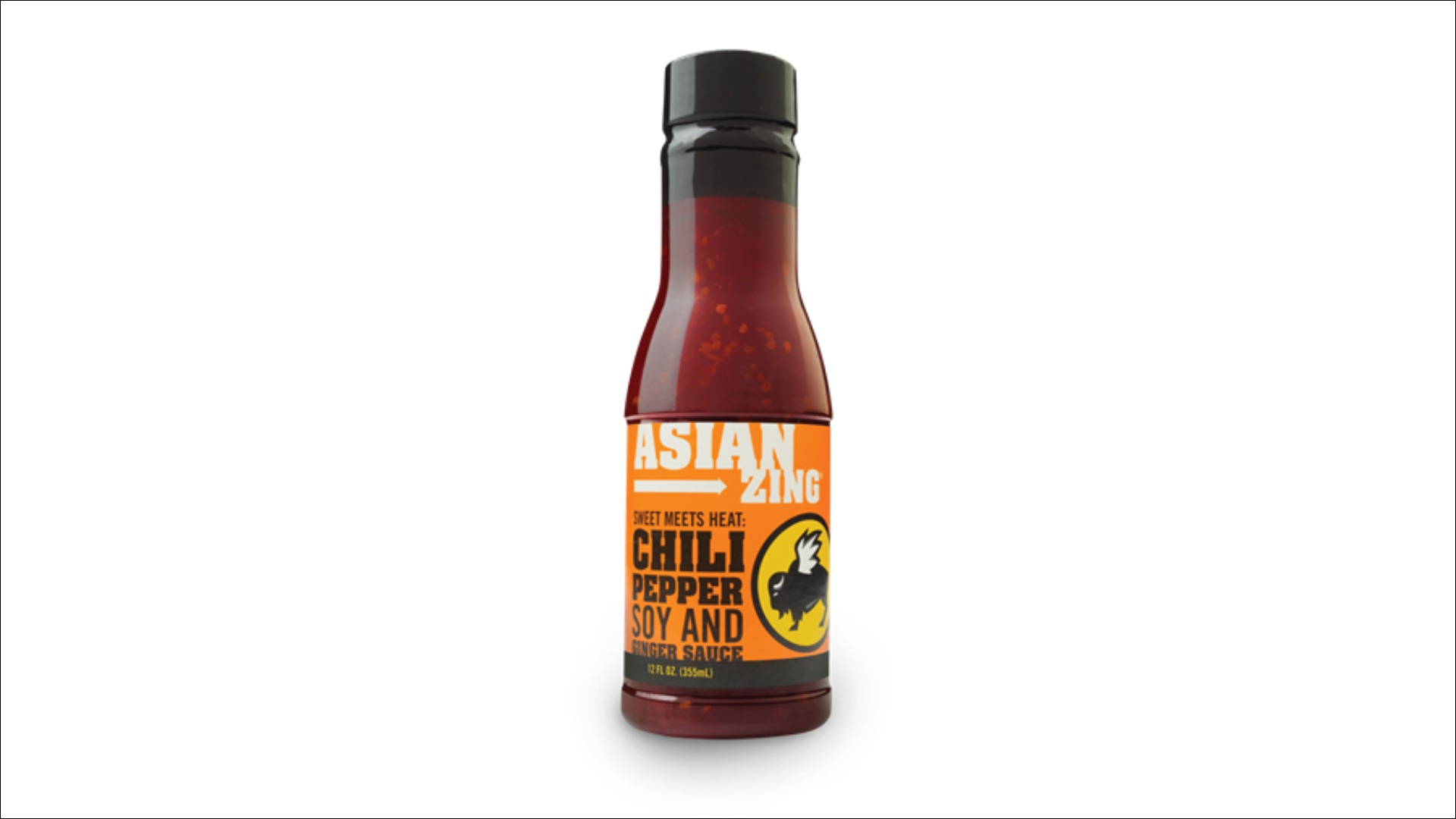What Does 'Asian' Even Mean On A Food Label?
The presence of one ingredient doesn’t define an entire continent’s cuisine.
I was at the grocery store the other night grabbing stuff for dinner, when I stumbled across a bottle of sauce on the shelf. It was called "Asian Zing," and it was the product of a big brand many of you are probably familiar with: Buffalo Wild Wings. Asian Zing is one of its signature sauces, something you can order at its restaurants, but apparently you can buy bottles of it at the store too. I stood there, mildly annoyed. Then something sort of went off inside me.
What makes a flavor “Asian”?
I took a brief look over the ingredients label and noticed that it was basically a sauce made out of corn syrup, unspecified chile peppers, soy sauce, and garlic. That's when it hit me: the word "Asian" meant absolutely nothing in this context.
Sure, many East Asian dishes contain soy sauce, chiles, garlic, and some kind of sweetener. There's no doubt about that particular combination. Some of the Korean food I grew up eating contained these ingredients in various iterations; this combination shows up in Chinese, Japanese, and Southeast Asian cooking, and more cuisines as well. As popular as these basic components are, though, they don't define Asian cooking as a whole.
When you think about it, the name "Asian Zing" is about as descriptive as calling a product "American Zest." Does that mean anything to you? I can't imagine calling a product "European Pizzaz" would signify much to anyone else, either. All of Europe would likely be scratching their heads, because what would you classify as the entire continent's signature flavor? There isn't one.
It all seemingly comes down to the inclusion of soy sauce. Whenever a product is heavy on the soy sauce, it's almost immediately touted as being Asian, even if whatever else is in it isn't necessarily so. Sure, soy sauce originated in Asia, but it isn't in everything. At home I don't just dump soy sauce on all my meals—that's not how it works. Just like any other widely used ingredient, there are nuances to its use. Besides, is that what people picture? Asians just dousing soy sauce all over their dishes like there's no tomorrow?
How to name an “Asian” product
What I think should happen with these naming conventions is to give consumers a better understanding of the base dish. What inspired Asian Zing sauce? If it was teriyaki sauce, why not just say so? Wingstop has a sauce called "Spicy Korean Q." Like Asian Zing, it just sort of has vaguely "Asian" combinations in it, and not necessarily Korean ones, either.
Wingstop's site describes Spicy Korean Q as: "Ginger, garlic, sriracha, and crushed red pepper create the perfect balance of sweet and spicy." Guys, I hate to break it to you, but, sriracha isn't even Korean. It originated in Thailand. (Those are two different countries, thanks.) You could have at least aimed for gochujang, a widely available red pepper sauce.
Listen, I'm not here to claim ownership of Korean cuisine, nor am I here to tell people not to enjoy something. I imagine Asian Zing actually tastes pretty good on all sorts of stuff. All its components work reasonably well together; it's a tried-and-true combination of salty, savory, and sweet. But the name means absolutely nothing. I have no idea what I'm buying, and if I have to look at an ingredient list to understand what a product is, doesn't that mean its title could use some work?
It's a matter of basic respect for people and their food. Brands, a little research doesn't hurt. You can talk to a few people who grew up eating a certain dish, reach out to a community—this would all do the trick, and help to inform what your product should be named.
To clarify, I'm not angry when I see products misattribute their "Asian" inspiration (though you can't expect everyone to feel the same way). The world is big. I haven't tasted everything there is to taste, and I don't expect the same from anyone else. But you can't just add a dash of one ingredient to something, name it after a whole continent, and expect everyone to be happy about it. Just take it easy with the soy sauce, would you?
